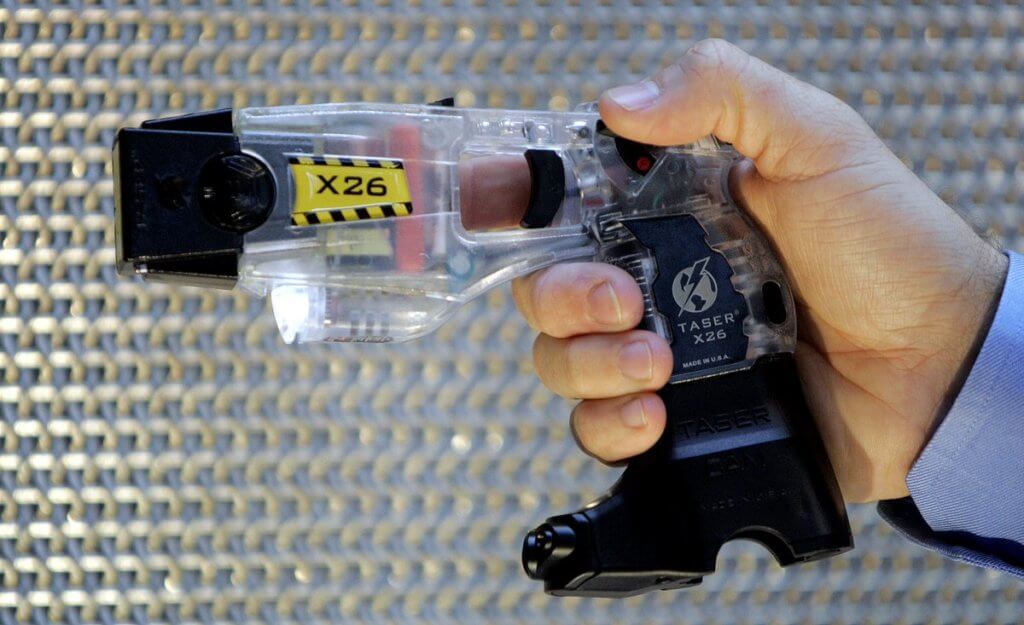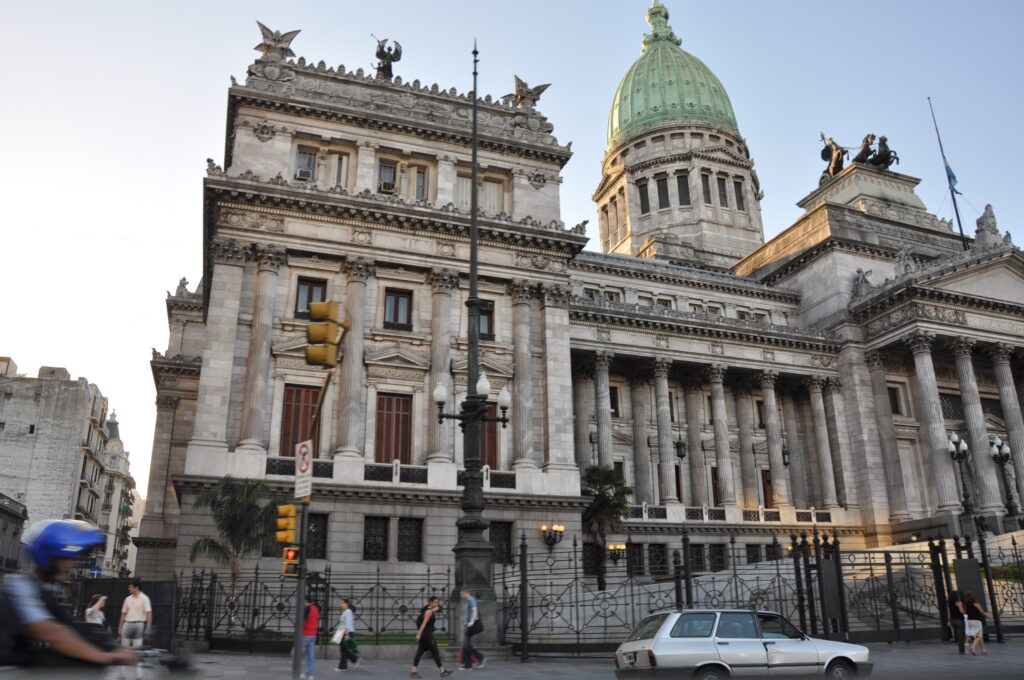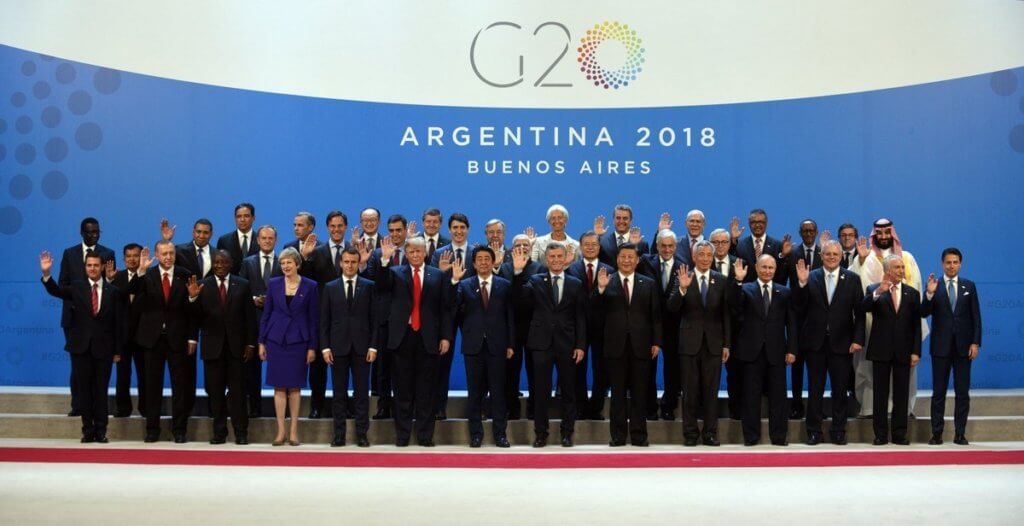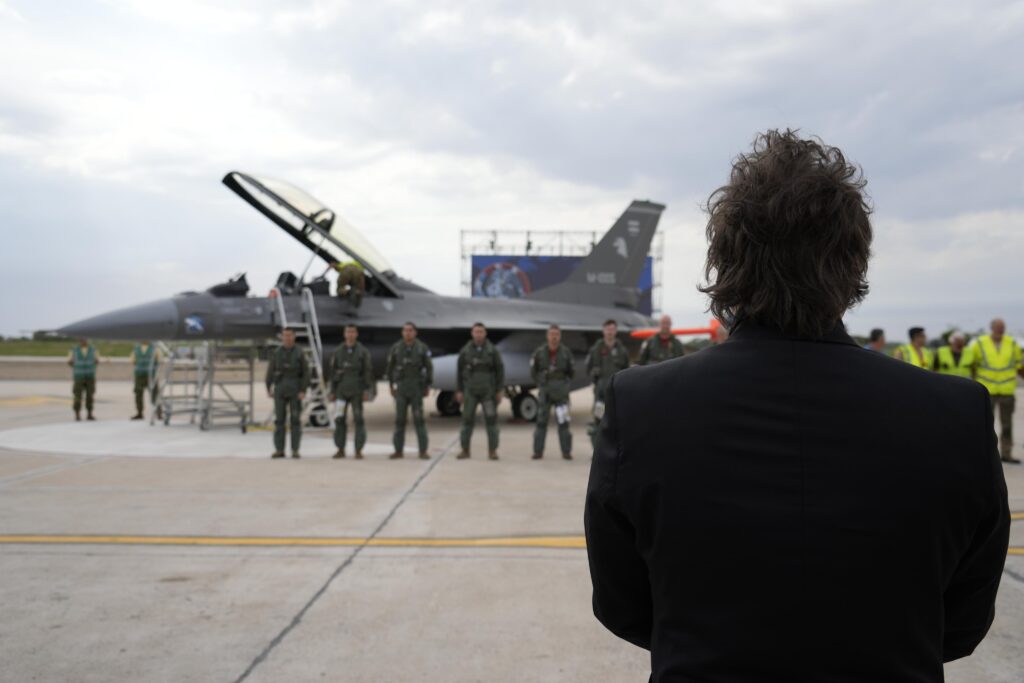The Buenos Aires government announced on January 4 that it would be implementing the use of 300 tasers in airports and train stations across the city.
Minister of Security Patricia Bullrich has described the tasers as a much needed “intermediary weapon” that will reduce the necessity for lethal firearms. This comes soon after Bullrich shocked the municipality by approving a new law that allows police officers to shoot attackers without warning.
Secretary of Security, Eugenio Burzaco spoke to Radio Mitre of the importance of using tasers, referring to the “shocking” case of the Swedish tourist who was shot on the streets of the capital and, as a result, has to have a leg amputated.
“Between batons and guns we need non-lethal weapons, so that police officers can act,” the secretarysaid. “We have decided – on a national level – to equip the police force with these non-lethal weapons for violent situations that arise, without having to use firearms.”

Infobae reported that the government bought 300 X26P tasers, which cost US$3,000 each. Depending on the cartridge, they can reach a distance of between four and 10 metres, immobilising the assailant immediately as soon as they come into contact. The electrical charge can last for up to five seconds, depending on how long the officer holds the trigger down for, but at no point will the victim lose consciousness and will therefore be able to hear the police officer’s instructions.
The tasers are also equipped with HD cameras which record each time the weapon is used, including the hour and the date, and can even do so in complete darkness. This information is stored on a chip, allowing the video to be viewed by the relevant authorities if a police officer is suspected of misusing the device.
Tasers are designed to help detain people in crowded areas where there is a high danger of collateral damage to third parties, for example a train or a crowded station. They are currently employed in many countries across the world, including the US, the UK, France and Australia, as well as Brazil, Colombia and Mexico in Latin America.
However, the Ombudsman of Buenos Aires, Gabriel Fucks has criticised the government’s decision to buy tasers, reported Perfil, accusing it of being “against international agreements.”
“This adds to the Ministry of Security’s controversial ruling which wishes to ratify police practices that are contrary to international standards and agreements,” he said, referring to the recent firearm ruling. He added that the decision was “absurd” as Bullrich had previously announced that the new Federal Police would be placing increased levels of importance on different areas such as “specialisation, investigation, complex crimes and the fight against narcotrafficking,” as opposed to street-level security.
The head of cabinet for the Ministry of Security, Gerardo Milman, spoke to Perfil explaining that the measures taken were part of a comprehensive security plan for the city.
“We believe that security needs to be focused on the citizen and not on the aggressor, in contrast to what the previous government did,” he said. “Everybody who criticises these recent measures are, in reality, against a security policy; they are rejecting firearms and any other non-lethal alternative.”
For Patricia Bullrich, “the decision has already been made,” and the tasers will be implemented regardless of the surrounding controversy.










